Hamas official warns Israel will pay dearly for its violations in Jerusalem al-Quds
The Palestinian Islamic Resistance Movement, Hamas, has warned that Israel will definitely pay a high price for its acts of aggression in the occupied Jerusalem al-Quds, its desecration of the al-Aqsa Mosque, and its brutal assaults on Muslim worshipers.
Moussa Mohammed Abu Marzouk, deputy head of Hamas foreign political bureau, made the remarks in a statement on Saturday after Israeli forces brutally raided Palestinian worshipers at the holy mosque compound on Friday night and Saturday, wounding hundreds of worshipers.
“We are able to deter the enemy and create new equations in the struggle with the occupation,” Abu Marzouk further said, the Palestinian Information Center reported.
The Hamas official called on all Palestinians in the occupied West Bank and the 1948 Israeli-occupied territories to engage in fierce clashes with the Israeli regime in all flashpoint and confrontation areas and try to enter Jerusalem al-Quds to support their fellow Palestinians at the al-Aqsa Mosque compound.
Abu Marzouk further urged Palestinians in the besieged Gaza Strip, where Hamas is based, and abroad to support Palestinians living in holy occupied city with all means available.
The Palestinian Red Crescent emergency service updated the figure of the wounded Palestinians early Sunday, saying around one hundred more Palestinians in Saturday’s overnight were wounded, 23 of them hospitalized.
The service further said that around 205 Palestinians had sustained injuries on Friday after Israeli forces assaulted hundreds of Palestinian worshipers on the compound with rubber bullets, tear gas, and stun grenades.
Dozens were taken to nearby hospitals after the aggression, including some who had ended up in a serious condition.
The center also said most of those wounded during the two-day clashes have been targeted in the eye and the face.
Since the beginning of the holy fasting month of Ramadan, the Israeli forces and settlers have been roaming the city, chanting anti-Palestinian slogans and trying to prevent Palestinians from gathering and performing their religious duties.
Early in the month, the Israeli regime also shut down Bab al-Amoud (Damascus Gate) of the al-Quds' Old City, further infuriating Palestinians.
The provocations took a still dangerous turn after the forces attacked Palestinian homes in East al-Quds’ Sheikh Jarrah neighborhood after Palestinians protested a court ruling which allows Jewish settlers to take over Palestinian homes in the neighborhood.
Arab nations slam Israel over al-Quds violence
Meanwhile, Arab countries, including the ones that agreed to normalize relations with the Israeli regime last year, lambasted a weekend of violence at al-Aqsa Mosque Compound and the Old City, the worst since 2017.
Sudan, Morocco, the United Arab Emirates (UAE), and Bahrain, which agreed to normalize, or normalized relations with Tel Aviv, strongly condemned the regime’s violent conduct in the occupied city.
Khartoum late Saturday denounced Israeli measures as “repression,” and “coercive action,” calling on Tel Aviv “to refrain from taking unilateral steps that diminish the chances for resuming peace negotiations.”
Abu Dhabi and Manama condemned Friday's storming of al-Aqsa Mosque Compound by Israeli forces and the ensuing brutal crackdown on worshippers seeking to access the site.
While Abu Dhabi called on Israel to “take responsibility for de-escalation” of violence at the holy site, Manama urged the regime “to stop these rejected provocations against the people of Jerusalem [al-Quds].”
Morocco, for its part, voiced “deep concern” over the violence, saying its King Mohammed VI “considers these violations... (are) likely to fuel tensions.”
But, Saudi Arabia failed to condemn the Israeli violence and only chose to reject Israeli plans to evacuate Palestinian households from Jerusalem, calling for the reinstatement of the pre-1967 borders.
Jordan warns Israel against its ‘barbaric’ conduct
Also on Sunday, Jordan, which has relations with Israel for the past nearly three decades, warned Tel Aviv to halt its “barbaric” attacks on Palestinian worshippers in the occupied city, saying Amman would be stepping up international pressure against Israel.
The Arab country, which has custodianship of Muslim and Christian sites in Jerusalem al-Quds, further said that the Israeli regime should respect worshippers and international law safeguarding Arab rights.
Jordanian Foreign Minister Ayman Safadi said the kingdom, would do its utmost to protect rights of Palestinians against ownership claims by Jewish settlers.
"Israel as the occupying force carries responsibility for protecting rights of Palestinians in their homes," Safadi said in comments on state media, adding, "Israel's illegal actions have dangerous repercussions on the stability of the region."
Jordan had earlier provided the Palestinians with land deeds in Sheikh Jarrah and now it says the measure proves that Israeli settlers’ claims to the property are groundless.
"The eviction of Palestinians of Sheikh Jarrah from their homes is a war crime," Safadi said.
Meanwhile, several hundred Jordanians protested near the fortified Israeli embassy in the capital while dozens of anti-riot police stood by as scores chanted "Death to Israel."
They called for the expulsion of the Israeli ambassador and scrapping of an unpopular peace treaty with Israel. Many citizens in Jordan are of Palestinian origin.
Pope urges end violence in Jerusalem al-Quds
In a related development, Pope Francis called for putting an end to violence in Jerusalem al-Quds, urging parties to find solutions in order to respect the multicultural identity of the holy city.
“Violence only generates violence. Let's stop these clashes,” he told pilgrims who gathered Saint Peter Square in Rome, adding, “I pray so that this might (Jerusalem [al-Quds]) be a place of encounter and not violent clashes, a place of prayer and of peace.
The violent crackdown by Israeli forces against Palestinians in the city and the ensuing clashes have already sparked global concern that the unrest could spread further.
Israel occupied East Jerusalem al-Quds, the West Bank, and the Gaza Strip during the Six-Day War in 1967. It later had to withdraw from Gaza but has been occupying the other territories since.
D-8’s role in Iran’s economy after Cairo summit
China slams US as ‘war-addicted’ threat to global security
China ‘firmly opposes’ US military aid to Taiwan
VIDEO | Press TV's News Headlines
President Yoon Suk Yeol to be removed from office
At least 19 Gazans killed by Israeli airstrikes since dawn: Medics
Leader: Iran neither has nor needs proxy forces
US fighter aircraft shot down ‘in friendly fire’ amid aggression on Yemen


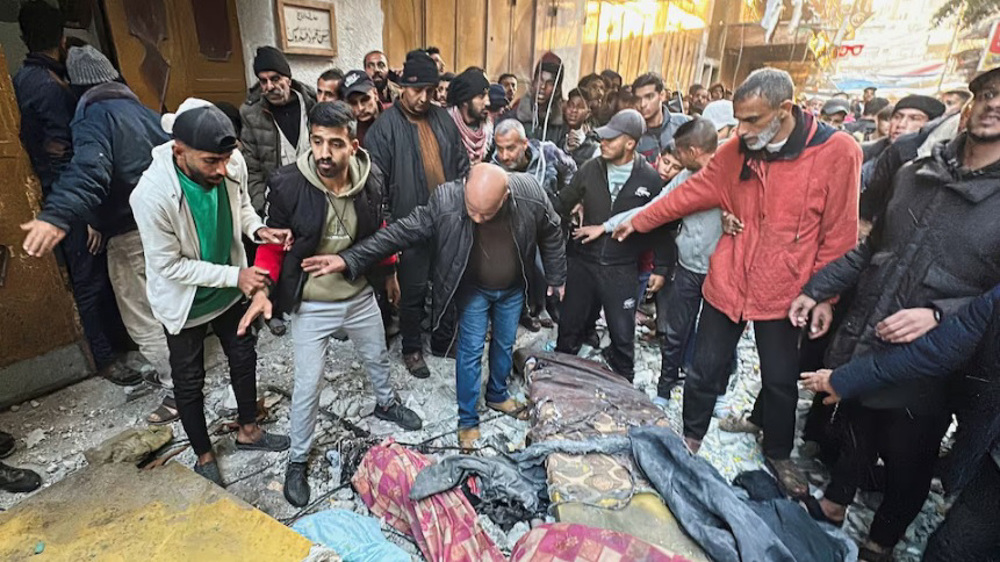
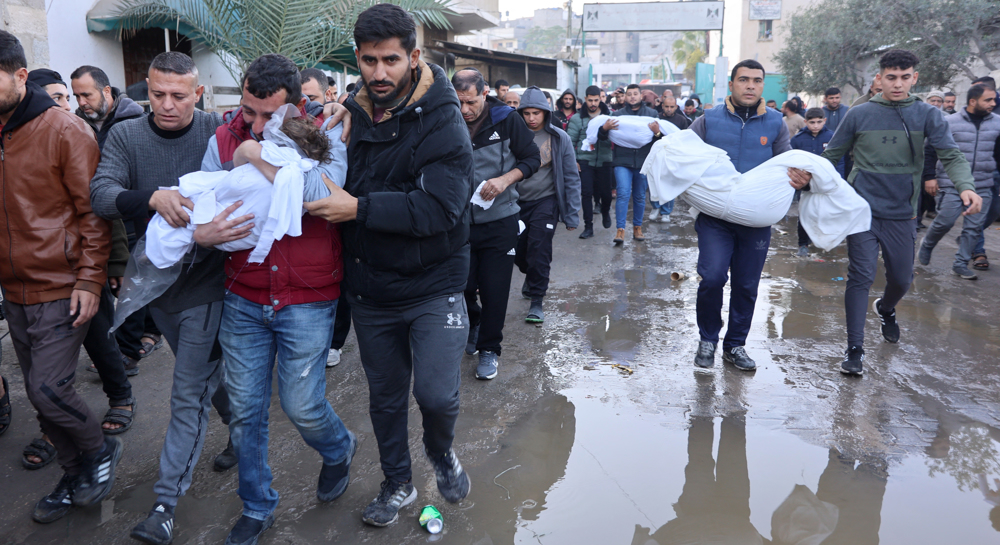
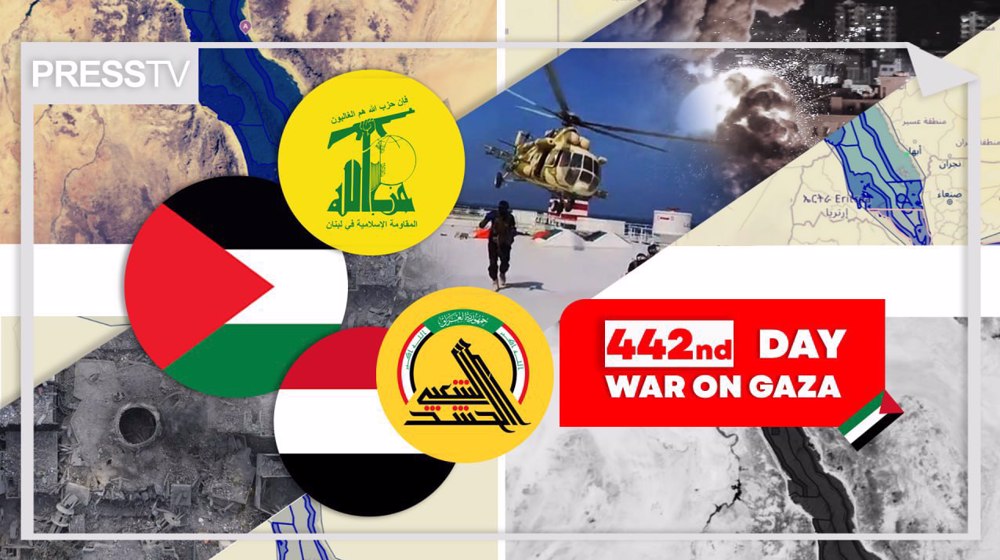



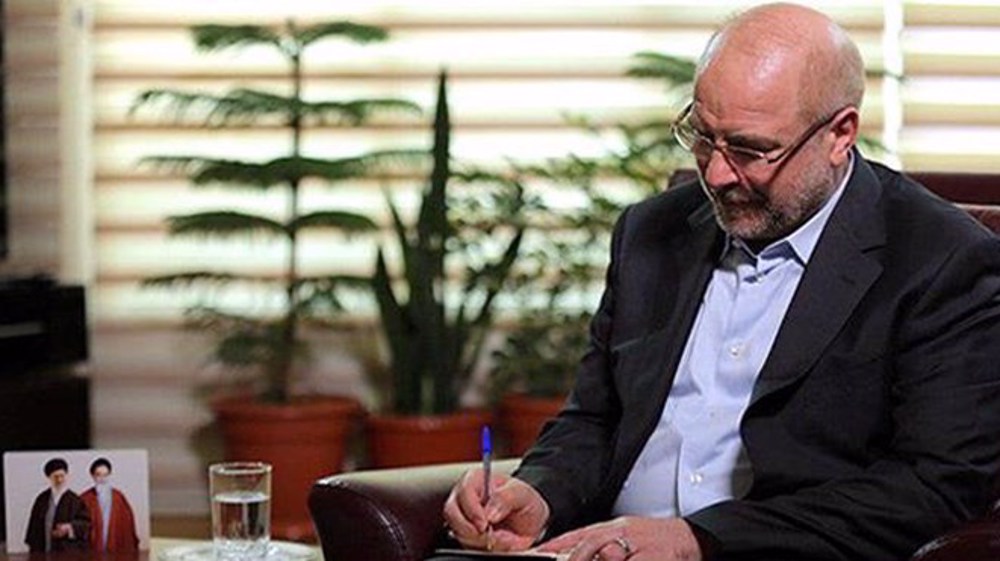

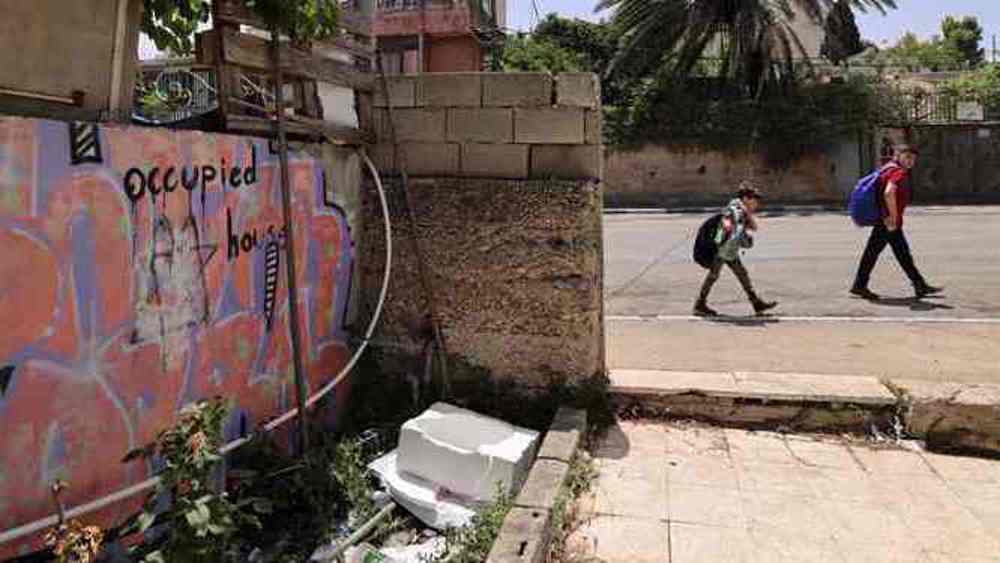
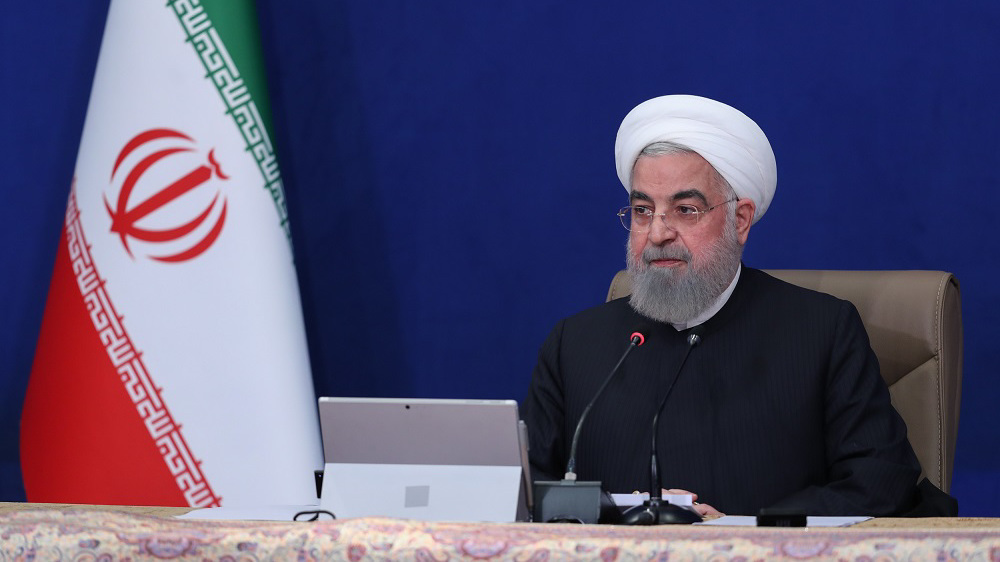

 This makes it easy to access the Press TV website
This makes it easy to access the Press TV website